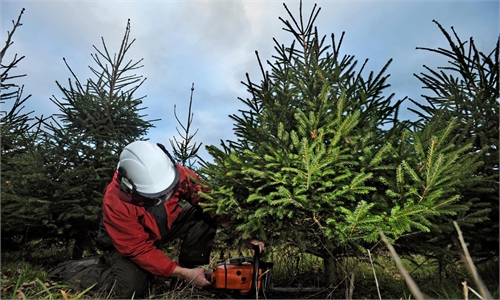
British Prime Minister Boris Johnson speaks at the House of Commons in London, Britain, on Oct 29, 2019.File photo:Xinhua
Britain is not adapting fast enough to the impact of climate change, the government's own advisory body said on Wednesday, calling for an urgent action plan to mitigate the effects of a warming planet.The Climate Change Committee (CCC) said the average land temperature in Britain had risen by around 1.2 C from pre-industrial levels and sea levels had risen by 16 centimeters since 1900.
Episodes of extreme heat were becoming more frequent, it said in a new report, warning that further delay in taking action to mitigate these risks will lead to higher costs in the future.
The call comes as Britain prepares to host the UN's climate change conference COP26 in Glasgow, Scotland in November, seeking renewed global commitments to prevent a catastrophic rise in the world's temperature.
Climate was also high on the agenda of last weekend's G7 summit, where Prime Minister Boris Johnson promised a "green industrial revolution" to meet environmental challenges and create jobs after the coronavirus pandemic.
The CCC, an independent body formed under Britain's Climate Change Act to advise the government on tackling global warming, said preparations for changes brought about by climate change were also vital.
"New evidence shows that the gap between the level of risk we face and the level of adaptation under way has widened," it said in a 1,500-page report.
Panel member Julia King warned "the severity of the risks we face must not be underestimated" and would not disappear as the world moves toward net zero carbon emissions, adding: "Many of them are already locked in."
The report identified eight priority risk areas which the panel said needed action within the next two years, at the latest.
Nearly 60 percent of the risks assessed were given the highest urgency score.
They included risks to terrestrial and freshwater habitats; soil health from flooding; crops and livestock; the supply of food and goods due to climate-related collapse of supply chains; to the power system; and to human health from increased exposure to heat.
AFP



